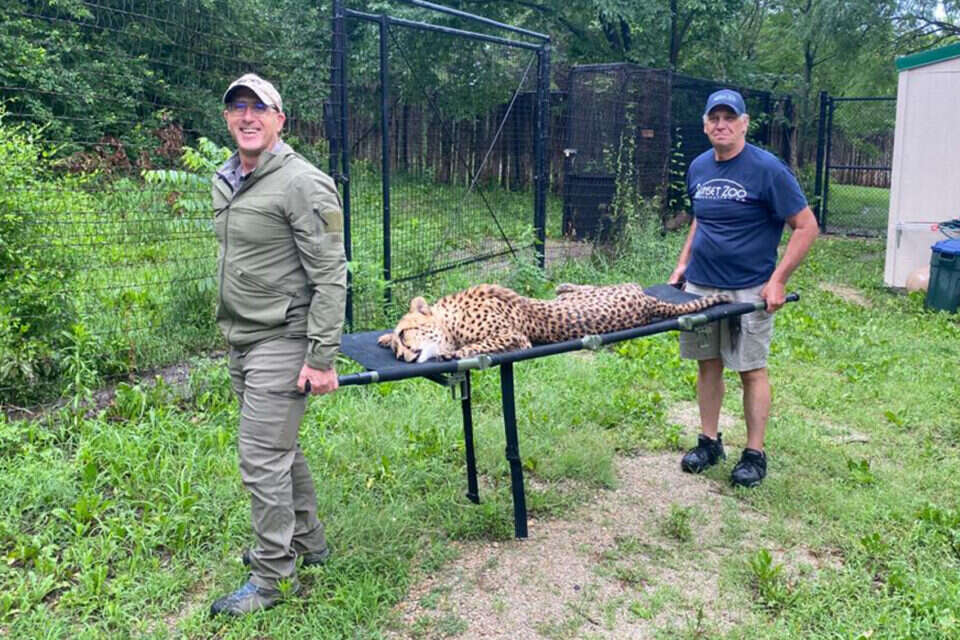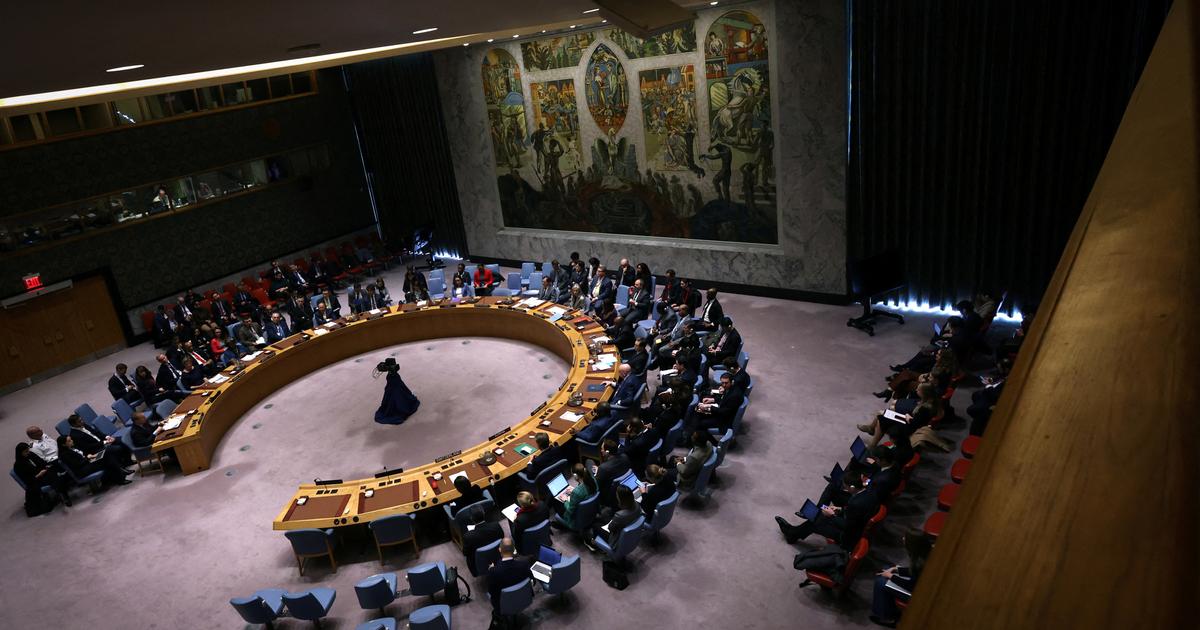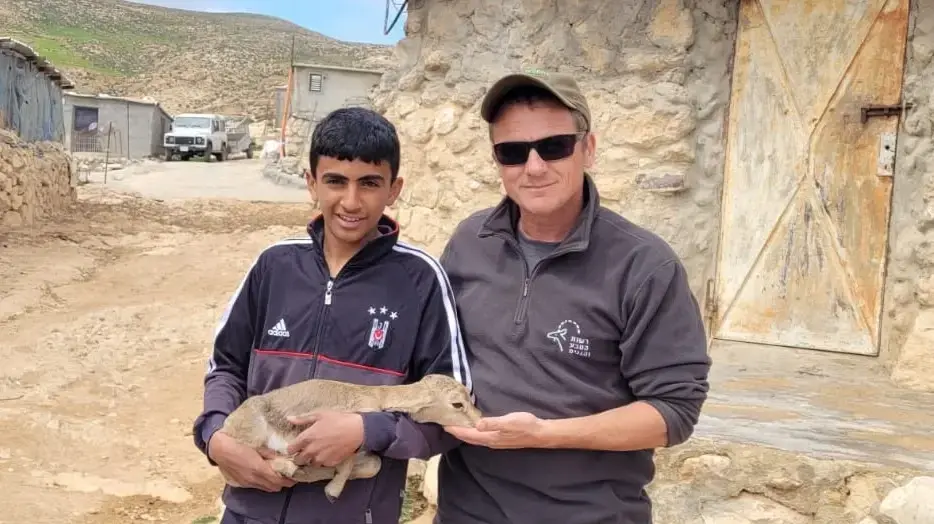His uncle Ashhar was recently appointed director of the wildlife hospital and chief veterinarian of the Ramat Gan Safari.
In his first interview, after returning to Israel from his residence and studies in the United States, Ashhar tells "Israel Hayom" about his past, his present - and even his future.
Ashhar told how he volunteered as a child at the Biblical Zoo in Jerusalem, a place he returned to as a student and therapist when he finished his veterinary studies in Israel. ", he said.
What brings you back to Israel?
"After I became a tenured professor at a highly regarded university in the USA and an international expert with three European and American expert certificates, and after publishing close to 150 articles in the field and after training generations of interns who became veterinarians at leading zoos in the USA, I reached a stage where I was debating whether to enjoy what that I will do until retirement - or do something more challenging. This opportunity arose and the position was offered to me. I thought it would be amazing to return home and contribute my knowledge and experience to the benefit of this safari project."
Hippos on safari (archive), photo: Shira Inbar Danin, courtesy of the safari
According to him, he and his family returned to Israel specifically for the new position he entered - even though they always kept in touch with those close to them in Israel.
They sold all their possessions and even had to take their little son out of the institutions he was enrolled in.
"I would come here every year to do projects and to promote the field as much as I could. My two grown children returned to Israel before us to enlist in the IDF," he said.
What would you actually define as "exotic animals"?
"All zoos are full of exotic animals. Basically, anything special or unusual that people grow in their homes or in zoos is an exotic animal. We are not talking about a dog, cat or farm animals. Veterinary medicine in a wildlife hospital is a field that is not focused on a specific type of animal , we deal with everything. The variety of species we are supposed to deal with is huge. One day I can take care of a turtle, followed immediately by a hawk, followed by a crocodile, and then I will be called because the elephant is lame, and so on and so forth."
Never run a wildlife hospital before?
"True, but I was head of a department and manager of a department. I was destined for management, I also have an MBA degree and I am certified in organizational consulting. I feel that I am ready for the position, and in any case, whoever hired me surely thinks so."
Few restrictions
Ashhar says that the wildlife hospital is a collaboration between the Safari and the Nature and Parks Authority that takes in most of Israel's injured wild animals. "Most of them are found and brought here by concerned citizens in the public and also by Nature Reserves and Parks Authority inspectors and volunteers," he says. Anyone who finds an injured, injured or helpless wild animal, collects it and can bring it to us.
This is a non-profit institution, whose entire purpose is to enable treatment for all those animals, which is the only way for them to recover and receive medical support until confirmation and return to the wild in cases where this is possible."
Are there any animals that are not handled on safari?
"As a principle, no, there are few restrictions. We would very much like people with good intentions not to pick up every chick they see, sometimes the chick's parents still take care of it and in the act of picking it up an injury occurs. The citizens are not always aware of this, and sometimes it is better to leave the chicks where they are."
Would you accept a person who comes to you with their injured pet, for example a dog or a gecko?
"Unfortunately, this is impossible, we do not treat animals that have owners, because they have private veterinary centers whose purpose is to treat exactly such cases. We are talking about species that originate in nature, and we treat them in such a way that we aim for them to return to nature."
Ashhar adds: "Today, when I am more experienced and know more about the subject, I do not keep these species and certainly not wild animals, because they have their place in nature and should not be disturbed. Regarding exotic animals, it is not certain that most of them should be in private hands."
Ashhar takes care of Gor Hotman in the Department of Zoo Medicine at the University of Kansas,
But it doesn't work out, you work in a safari - private hands that keep wild animals.
"The safari does not keep animals that originate from the bar, the animals in zoos originate from other zoos."
I didn't think you took an elephant from the wild, but refers to your words about raising exotic animals in private hands.
"There are exotic species that are very domesticated that live in a normal and good way with humans, and that is perfectly fine. There are more challenging species, for which a zoo is more suitable. This is in contrast to private breeders in homes for that matter. I do not breed what I think cannot be given the proper conditions At home. The safari as an organization can give these animals adequate conditions, and in the end they are kept for the public."
So what animals do you currently have at home?
"We have a dog and a cat. The cat was a kitten of stray cats that we found in the garbage can 15 years ago. He was sick and poor, we took care of him and rescued him, and since then he has been wandering with us, and now he has reimmigrated to Israel. The biggest challenge in moving was to be able to bring the animals with us to Israel, It was not easy. In the past I even had snakes, turtles and parrots."
"I thought it would be amazing to come home."
Ashhar treats a sick turtle at the Biblical Zoo in Jerusalem,
What does the future hold for Safari?
"This place has grown exponentially in recent years, at least in terms of the number of cases that come here and consistently. The hospital sees about 1,500 more patients each year than in previous years."
It seems to me that only I bring 500 hedgehogs with scabies to the safari every year.
(Laughs) "It's true, the hospital sees 1,200-1,000 hedgehogs a year, it's a very big systemic challenge. We need to see that we have the appropriate facilities and that there are enough inpatient rooms, but above all we need to invest in the manpower, which is already stretched to the limit. We need to strengthen the member These in a significant way, especially when we see that the number of cases that come here only continues to grow and grow year by year."
Referring to the increase in the number of cases of animals being brought to the hospital, Ashhar thinks that the accelerated urban development is the one causing the environmental damage.
"There is the RTG and advertising volunteer system that causes more awareness.
When they know that there is an address, many cases come to us," he says. "There is a lot of advertising and there is a very successful TV series about the hospital, this all causes more animals to come here.
There is a very large array of people who are invested in the hospitalization of animals.
We would like to scan every injured animal that comes here."
How do you do it today?
"Unfortunately, at the moment we have to go with the injured animals to places where this equipment is available. It is not easy logistically, nor is it easy at all for them. Once we have this equipment, I am sure that the level and quality of our treatment will undergo a significant upgrade. It is not in the sky, we We just need the good partners on the road to help make it happen."
were we wrong
We will fix it!
If you found an error in the article, we would appreciate it if you shared it with us








